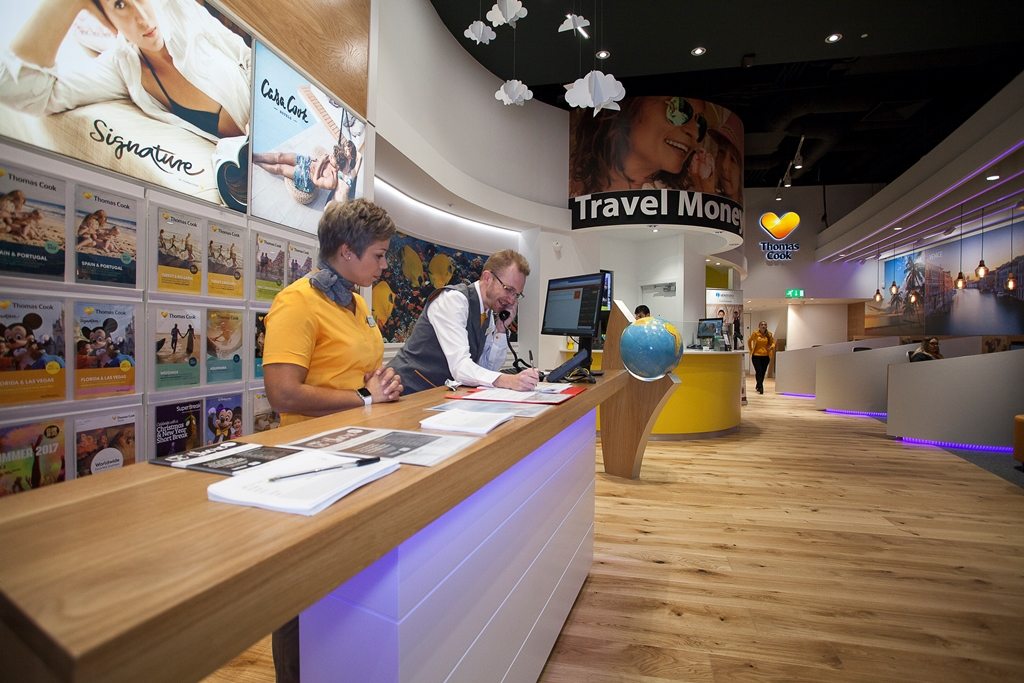Skift Take
While it's good news for Greece that bookings are on the rise, the struggle to find value in Spain shows just how difficult a summer it might be for European tour operators. Thomas Cook's cautious outlook hints at gloomier times ahead.
After suffering both an economic and migrant crisis, Greece appears to be firmly on the way back as a holiday destination.
The country currently occupies the number one spot for the Thomas Cook following a 40 percent rise in the number of bookings. The tour operator expects to take around 2.5 million people to the country over the next twelve months, a similar level to the pre-crisis year of 2014.
The increase come on the back of the tour operator putting on two extra flights and being able to secure more hotel beds.
The rise in Greece, as well as interest in smaller destinations such as Croatia and Bulgaria has offset a continued reluctance of consumers to travel to Turkey, which continues to suffer from the impact of a geopolitical problems.
Greece’s upsurge in popularity may also come at the expense of Spain. In a surprising development Chief Executive Peter Fankhauser said the company would not be drawn into “chasing volume”.
Problems in cheaper destinations such as Turkey, Egypt, and Tunisia meant that Spain was extremely popular in 2016. A total of 75.6 million tourists overall (not just through Thomas Cook) visited the country during the year, a rise of 10.3 percent.
However, this popularity has come at a cost with hotel prices rising 6-8 percent. UK charter risk bookings to the Spanish islands are now slightly behind last year’s level with prices up by 9 percent.
“We have expanded our offering considerably to Greece in the anticipation that Greece is going to be strong,” Fankhauser told journalists on a conference call after the release of Thomas Cook’s first quarter results.
Should demand continue to rise for holidays to Greece, Fankhauser said that Thomas Cook’s flexible approach would enable it to secure more hotel beds at the likely expense of Spain.
“Greece overall is up and every island is up. I would love to say that growth is up because of Casa Cook [the company’s new hotel concept] but that would probably be a little bit too much. What we see in Greece is that we have an overall increase of 40 percent throughout all the islands.”
Q1 Performance
Thomas Cook’s commentary on the summer ahead came as it reported its results for the three months up to the end of December 2016.
Tour operators make most of their money during the European summer months when tourists head off to sunnier climates, so the winter period is where they traditionally rack up substantial losses.
Thomas Cook’s pre-tax loss increased by 18 percent to $170 million (£135 million), largely on the back of increased finance charges relating to a new $801 million (€750 million) bond, which the company used for refinancing. Revenue increase by 14.8 percent to $2 billion (£1.6 billion).
Despite Thomas Cook’s solid start to the year, the company remains cautious, given the “uncertain political and economic outlook” and some analysts are similarly downbeat.
Wyn Ellis of Numis said in a note to investors that Thomas Cook’s “basic business model continues to face structural challenges”, a point agreed on by Mark Irvine-Fortescue of Panmure Gordon, who wrote “[W]e have lingering concerns about TCG’s structural positioning in what is a dynamic industry.”
The company’s share price fell by 8.75 percent in early trading after the announcement.
The good news for Thomas Cook is that at the moment, Europeans are still happy to travel.
For the upcoming summer, the company’s Northern Europe and Continental Europe divisions are trading “significantly stronger than at this point last year”.
In the UK business booking are 1 percent up overall. There had been a worry that discretionary items like holidays would be affected by last summer’s Brexit vote, but as with the economy in general, these fears have not yet been realized.
One of the reasons for this is because consumers have simply carried on spending. Signs that this could be about to change came at the end of January, when new figures released by the bank of England showed that consumer credit had grown at its slowest rate for two and a half years at the end of 2016.
The Daily Newsletter
Our daily coverage of the global travel industry. Written by editors and analysts from across Skift’s brands.
Have a confidential tip for Skift? Get in touch
Tags: earnings, greece, thomas cook, tourism, turkey
Photo credit: A Thomas Cook store in London. The tour operator reported that bookings for Greece were up by 40 percent. Thomas Cook
